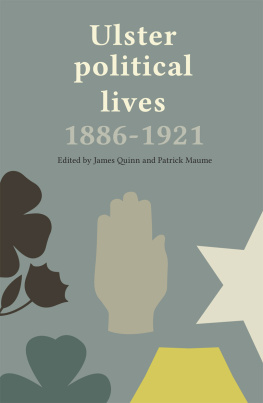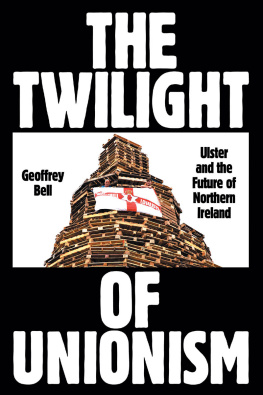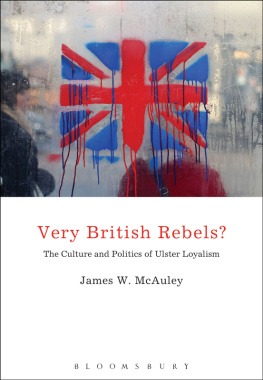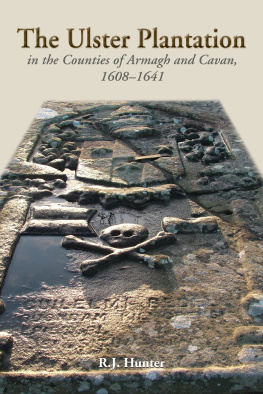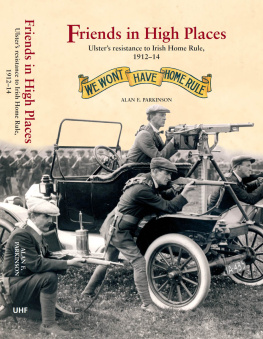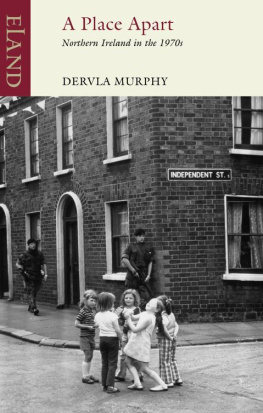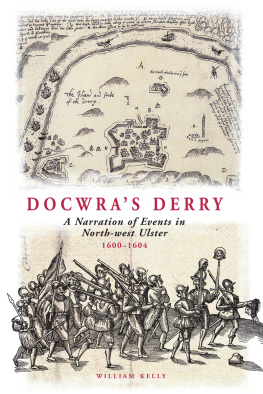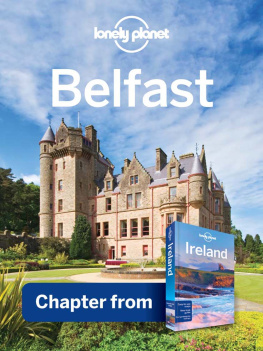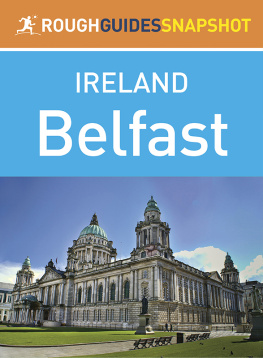The efforts of a great many people have gone into the making of this publication. Clearly, without the enthusiastic co-operation of my interviewees there would be no book. Without exception they have delivered what I asked of them, embracing my challenge to reflect thoughtfully on their experiences of identity. Some of the contributors are close friends, some are acquaintances and several I had little or no contact with before this project, but without exception they impressed me with their willingness to grapple with the complex issues that identity poses in this contested part of the world. I thank all the contributors for taking part in the journey and I hope they are as happy as I am with how our conversations appear in print.
Gathering together a stable of such distinguished interviewees was never going to be easy and I must thank those who helped me to assemble my wish list. Susie Tyrell, Tamar Thomas, Joana Cannon, Jimmy Nesbitt, John Robinson, Vincent Parker, Richard McAuley, Ian Paisley, Martin OBrien, Grainne Mooney and Stuart Bailie all played a part in helping me to secure the co-operation of particular individuals and I am grateful for their support.
My agents Paul and Susan Feldstein were enthusiastic persuaders for the project from its earliest days and their support and encouragement is gratefully acknowledged. Sean OKeeffe and his team at Liberties Press have been supportive throughout. Alan Murray, in particular, played a crucial role in transcribing the interviews into editable copy and he did so with consistent speed and accuracy. Alice Dawson, Clara Phelan, Therese Murray, Fergal Condon and Megan Marshal also deserve special mention.
The Arts Council of Northern Ireland was quick to offer support for the project under its Support for the Individual Artist Programme and I want to thank, in particular, Damian Smyth and Roisin McDonough. Several of the Belfast interviews took place in my home, but the Lyric Theatre was also the location for some of the conversations and my thanks go to the team there for their hospitality.
Colin Davidson and I have been working together for some time on another project and this publication has benefited enormously from that collaboration. Colins remarkable portraits of eleven of the interviewees add greatly to the quality of the book and Im delighted that he so enthusiastically agreed to them being used.
Several friends and colleagues provided assistance and advice with various drafts for which I am very grateful, among them Jacqueline McIntyre, Damien Magee, Mark Devenport, Seamus Kelters and Neil Martin. My son Andrew was the first to read the draft edits of each interview and he was unswervingly supportive and insightful in the advice he offered, and I am enormously in his debt. My good friends Stephen Douds and Stephen Walker have been unshakably encouraging throughout and their perceptive feedback has been hugely helpful.
Finally a word of thanks to Alison, Andrew, James and Kirsty. They have had to live with the ups and downs of the project for longer than any of us anticipated. I couldnt have managed it without their ever-present love, support and good humour and I promise we can stop talking about identity all the time at home now.
Mark Carruthers
Belfast
12th July 2013


